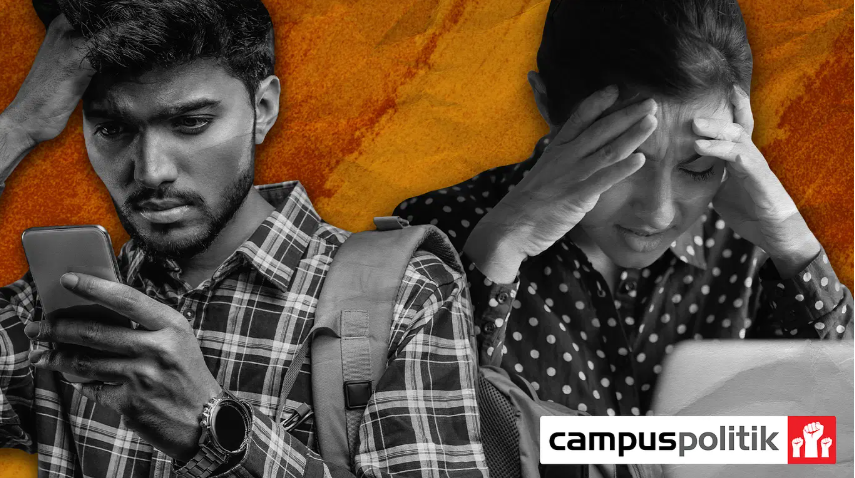
When the Coronavirus pandemic hit India, educational institutions were among the first public spaces to be closed to contain the spread of the virus. While exams for first and second year college students were cancelled, the question of conducting final year exams loomed large. In late June, the University Grants Commission recommended scrapping exams for final year students as well. On July 6, however, it went back on its recommendation, stating that final year exams must be compulsorily held by the end of September.
Though some universities have decided to award degrees based on the results of previous semesters or internal assessments, Delhi University and Punjab University have decided to conduct online open book exams. What’s the justification for holding these exams?
An exam is an assessment of an individual’s knowledge, and is premised on some training imparted to the students. Given the washout of this semester’s classes, the decision to conduct exams runs contrary to this premise. Can there be exams without education?
At the core of this idea is the concept of attendance. A word often loathed by students and enforced strictly by teachers, it serves an important function: to guarantee that the person who graduates from an institution has been imparted the education it professes to offer. Each institution has its own requirements of attendance, and the function of “minimum attendance” is to ensure that the student is exposed to and imparted at least the bare minimum of instructions so as to qualify them as a graduate of that institution; trained in the course, principles, and beliefs of the institution. In fact, courts have held that it is not the right of a student to appear for the exam if they do not have the requisite attendance.
The pandemic has thrown a spanner in the works of imparting education. Social distancing norms mean that no physical classes have been conducted in India since late March. This has led institutions to explore online classes as a new mode of instruction.
Public universities attract students from all parts of the country and offer quality education to socially and economically underprivileged students. With regard to access to the internet, it is reported that India has over 560 million internet users, less than half its population. Jammu and Kashmir has been under a communications blackout, total or partial, since August last year and still has only 2G internet services available.
These disparities create a digital divide that privileges those with better access, and runs counter to the very idea of equal access to education that public universities are meant to provide.
Our public universities in particular were woefully underprepared to offer any assistance to students who would not have access to the facilities to attend online classes. This has had two consequences. First, a significant number of students have not been able to access any of these classes. Second, there is a wide gap caused by the disparity in access to the resources, leading institutions to relax attendance norms and requirements.
The University Grants Commission in its guidelines issued on April 29 stated: “The period of the lockdown may be treated as ‘deemed to be attended’ by all students/research scholars.” Since then, Indian universities have not enforced minimum attendance requirements, and attendance is no longer a reason to prevent a student from graduating.
This raises a pertinent issue. Attendance is meant to ensure that a bare minimum amount of training be imparted to students on which they are to be assessed. If students have not attended classes and nor has the institution ensured that students were taught, what is the basis for the institution’s demand that students be assessed by end-semester papers as usual? What right does an institution have to mandate exams without education?
In addition, serious doubts have been raised on the quality of education imparted through online classes. In the present situation, it seems clear that any institution mandating exams is devaluing not only the concept of attendance, but also its teaching and instructions. If institutions expect their students to be able to secure good grades in exams without teaching them what they are to be examined on, it follows that teaching itself is irrelevant. These institutions might as well do away with formal instruction and only serve the purpose of sharing material online in order to conduct exams at the end of the semester.
This does not, however, mean that students do not have the right to graduate during the pandemic. This is an extraordinary situation that has led to massive displacement of students from their centres of learning, and consequently, not every student can be expected to attend online classes. Alternative assessment mechanisms or graduation based on past performance would be the right course to adopt. Each institution proposing exams should first make a case for even having the right to do so.
Ribhav Pande is a final year law student at the University of Delhi
www.newslaundry.com
On the principle of 'Sarvajan Hitaya, Sarvajan Sukhaya' -- Welfare for all, Happiness for all…
With hundreds reported missing in Delhi this year, this guide explains how families can use…
The case came to light after a 35-year-old woman from Panipat alleged that she had…
During the investigation, CCTV footage helped identify the suspects, according to Delhi Police
The launch took place during the inauguration of the Delhi Police Exhibition Hall at Connaught…
The 28-year-old factory owner was taken to Satyawadi Raja Harish Chandra Hospital in Delhi, while…